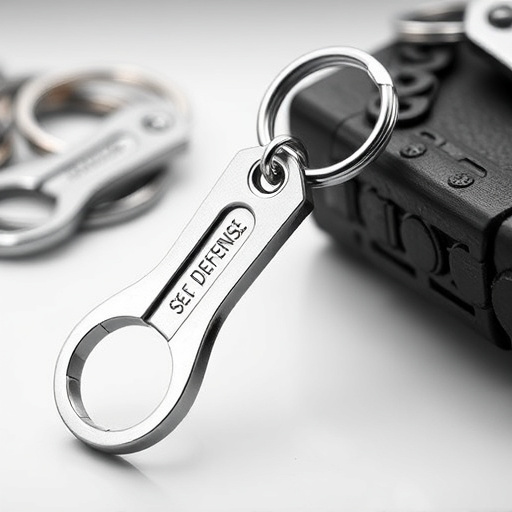Personal safety is a primary concern for runners, prompting the development of keychain safety tools as convenient and discreet self-defense options. Increasingly recognized for their effectiveness, these tools have led to a demand for legal carry guidelines, with many U.S. states now establishing regulations allowing responsible citizens to legally carry them for personal protection during outdoor activities. Runners should familiarize themselves with state-specific laws regarding keychain safety tools to ensure compliance and promote safe practices while enjoying their daily jogs.
In today’s diverse landscape, understanding your state’s guidelines on defensive keychain legal carry is paramount for personal safety, especially for runners. This comprehensive guide explores why and how to legally equip yourself with keychain safety tools, focusing on key aspects like state-specific regulations and practical use cases. By delving into these considerations, runners can enhance their security while navigating public spaces, ensuring a safer experience during their daily jogs or outdoor activities.
- Understanding the Need for Defensive Keychain Legal Carry in States
- Keychain Safety Tools: A Comprehensive Guide for Runners
- Navigating State-Specific Guidelines for Carrying Defensive Keychains Legally
Understanding the Need for Defensive Keychain Legal Carry in States
In today’s world, personal safety is a top concern for many individuals, especially those who engage in outdoor activities or commute alone. For runners, who often find themselves in remote areas or isolated trails, having a means of self-defense is not just a possibility but an essential consideration. This is where keychain safety tools for runners step in as a convenient and discreet solution. These small yet powerful devices can provide a sense of security and peace of mind during runs, allowing individuals to enjoy their activity without constant worry.
The need for legal carry guidelines for defensive keychains is driven by the growing recognition of these tools as effective personal defense mechanisms. With proper training and understanding, runners can utilize these keychains as a last resort when facing dangerous situations. Many states are now acknowledging this need and establishing regulations that allow individuals to legally carry such devices for self-protection, ensuring that responsible citizens have access to essential keychain safety tools for their well-being while running or engaging in other outdoor pursuits.
Keychain Safety Tools: A Comprehensive Guide for Runners
Navigating State-Specific Guidelines for Carrying Defensive Keychains Legally
Navigating state-specific guidelines is crucial when considering legal carry of defensive keychains, especially for runners who value keychain safety tools as a means of self-defense during their outdoor activities. Each U.S. state has its own set of regulations governing concealed weapons, including specific provisions for small, easily transportable defense devices like keychains. For example, some states allow any individual licensed to carry a firearm to also legally possess and carry a defensive keychain without an additional permit.
However, other states have more stringent requirements or outright prohibit the open or concealed carrying of such devices. Runners planning to rely on keychain safety tools for their protection should thoroughly research the laws in their respective states. Online resources from state attorney general offices and law enforcement agencies can provide detailed insights into the legalities surrounding defensive keychains. Understanding these guidelines is essential for ensuring compliance with local laws, preventing legal issues, and promoting safe practices when carrying keychain safety tools for runners.
The integration of defensive keychains as legal carry tools for states offers a crucial layer of personal safety, especially for runners. By understanding and adhering to state-specific guidelines, individuals can ensure they are utilizing these keychain safety tools responsibly and legally. With proper knowledge, runners can confidently navigate their environment, knowing they have a reliable means of self-defense readily available.
